Centre for Policy Development's Blog, page 57
January 29, 2014
Message from Travers McLeod
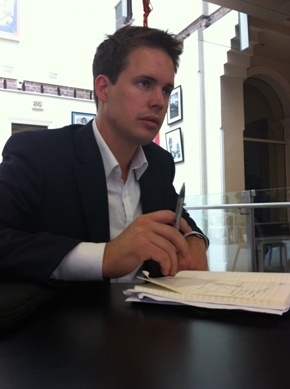 I am delighted to write to you as CPD’s new CEO.
I am delighted to write to you as CPD’s new CEO.As Miriam Lyons and I conclude our handover this week, I am amazed by her legacy here, and grateful that she will remain involved as one of our Fellows. Policy change is tough, especially given the complex challenges ahead and the short-termism that seems to dominate politics here and abroad. CPD has taken some impressive strides so far, but to keep up that momentum we need your continued support. Organisations like CPD have to be front and centre of the ideas business, driving a constructive national discourse towards a fairer, more inclusive and more sustainable future.
We have had two pieces of good news this past week. The Hon. Fred Chaney AO, one of CPD’s Patrons, was named Senior Australian of the Year. The award is a wonderful tribute to Fred’s work over many years, especially on reconciliation, social justice and equality. Our Sustainable Economy Research Program was also recognised internationally for its interdisciplinary research by the Global Go-To Think Tank Index, a great nod to the leadership and dedication of CPD Research Director Laura Eadie.
The CPD team is hard at work, preparing papers on the economic benefits of marine protection, Queensland’s macroeconomic future, and innovation within the federal public sector. Three of our fellows, Jennifer Doggett, Ian McAuley and John Menadue, have made a submission to the Senate Inquiry into the Federal Government’s Commission of Audit. As I meet our supporters, I have been asking what other areas CPD should focus on. Inequality and social mobility, wellbeing, innovation, infrastructure, new growth industries, superannuation, national planning, and governance for future generations have been proposed. I would be grateful for your ideas too – please get in touch with any suggestions.
Undoubtedly, the next few years are critical for public policy development in Australia and abroad. Now for the Long Term, which I was fortunate to work on before returning home, makes the case for concerted action internationally. We live in a world that is hyperconnected. Understanding Australia’s place in the global economic, security and environmental landscape and resisting an exclusively domestic mindset is important for positive, evidence-based policy at home, including in areas like trade, tax, energy and resources, immigration, agriculture, employment, health, education and development. I hope CPD’s research can help to expand Australian policy horizons in this way.
CPD is an organisation where evidence-based research and the public interest are promoted above personal gain or the fortunes of any political party. Our work feeds into what Ross Garnaut has described as the “substantial independent centre of the national polity”. As a supporter, you are a key part of this endeavour. I look forward to meeting more of you as I get stuck into the job, and am excited about what we can achieve in the months and years ahead.
Best wishes for a brilliant 2014!
Travers
 Short-term thinking cannot address Australia’s long-term dilemmas – Help us look further ahead!
Short-term thinking cannot address Australia’s long-term dilemmas – Help us look further ahead!

January 27, 2014
CPD Patron Fred Chaney AO – Senior Australian of the Year
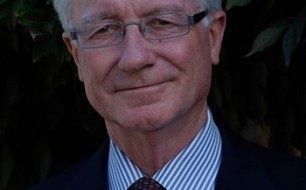 Congratulations
CongratulationsBest wishes to CPD Patron and author Fred Chaney AO honoured as Senior Australian of the Year with recognition for his work in support of often marginalised people.
“Fred’s long history of public service is rooted in his fierce commitment to social justice and a belief in the inherent equality of people. In all his leadership roles, Fred inspires others to work collaboratively, respectfully and ambitiously to overcome the barriers that inhibit people’s full economic and social participation in Australian society.”
Fred Chaney AO Senior Australian of the Year
Read more about Fred and his work with CPD

Global Go To Think Tank Index | January 2014
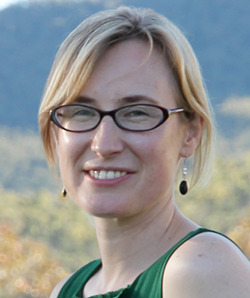 CPD Sustainable Economy program recognised by international ‘gold standard’ index.
CPD Sustainable Economy program recognised by international ‘gold standard’ index.The Think Tanks and Civil Societies Program (TTCSP) of the University of Pennsylvania has released its Global Go-To Think Tank Index for 2013. Over 1,950 scholars, public and private donors, policy makers, and journalists ranked 6,826 think tanks from around the world, highlighting their important role for governments and civil societies.
Led by research director Laura Eadie CPD’s Sustainable Economy research program was ranked 34th among the ‘Best Transdisciplinary Research Program at a Think Tank’, and is the first Australian organisation to feature in this new category.
“The Index has become the gold standard for think tanks around the world and is widely cited by governments, donors, journals and policymakers as the foremost profile and performance of think tanks in every region of the world. To complement this global expansion, regional events took place in over 30 global cities to announce the report, which was translated into 13 languages including Arabic, Chinese, French, German, Hebrew, Hindi, Italian, Japanese, Korean, Polish, Portuguese, Spanish and Turkish.”
Download the index report at the Think Tanks and Civil Societies Program
Learn more about CPD’s Sustainable economy program
Change can happen faster than you think – help us seize the moment and point to the alternatives. Add your voice to ours!

The Drum | 22 January 2014
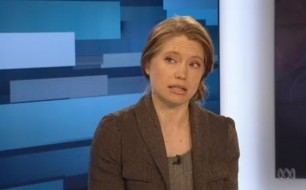
CPD’s outgoing Executive Director Miriam Lyons joins former NSW Liberal leader, now with Barton Deakin, Peter Collins, the economics editor for The Age, Peter Martin and host Julia Baird on ABC’s The Drum. They discuss the recent allegations that Australian navy personnel abused asylum seekers. What would constitute grounds for an enquiry, and does it make sense to vilify the media for not providing clearer evidence, when official channels block access to such information? Staying close to the subject Professor Gillian Triggs believes children in detention is our most pressing matter, Miriam and the panel weigh in:
“The emphasis on getting children out of detention is one that will resonate with most Australians, I think we like to think of ourselves as decent and humane country, we don’t always live up to that impression of ourselves but we don’t like really having our faces rubbed in examples where were clearly not acting responsibly or humanely…
The Australian government has a duty of care for children and it’s not acting like a dutiful carer by effectively having children get brought up in…leaky prison camps on islands, it’s not acceptable”
Watch the episode of The Drum via ABC iView

January 22, 2014
The Guardian | 15 January 2014
 Unfair electricity tariff system for those without air conditioners.
Unfair electricity tariff system for those without air conditioners.In the current electricity system all consumers pay for the network of ‘poles and wires’ that are needed to maintain a constant supply of electricity in times of peak demand. Last year CPD found that 30% of Australians without air conditioners are having to subsidise the costs needed to supply power to those using air conditioners.
Lenore Taylor at The Guardian Australia referred to a study suggesting the cost is at $350 per year. The Energy Supply Association of Australia had also suggested that solar users have an unfair advantage, avoiding paying network costs but still relying upon it in peak times, whereas the CPD report showed that solar panels reduce the subsidy as they reduce demand.
Most solar households end up only paying a fraction of their fair share of the cost of maintaining the network. They’re not doing it deliberately, it’s just the way the billing arrangements for electricity were set up, long before rooftop solar reached the scale we see today.
But in a study for the Australian PV network, the Centre for Policy Development found that solar photo-voltaic panels actually reduced the cross subsidy because to whatever extent solar is operating during times of high demand, it reduces that demand.
Read the article at The Guardian
Find out more from CPD’s Getting the facts right on Solar
Short-term thinking cannot address Australia’s long-term dilemmas – Help us look further ahead!

January 13, 2014
The Age | 14 January 2014
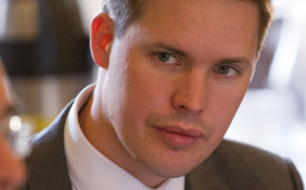 Operation Sovereign Borders – Australia’s “military-led, border security operation”
Operation Sovereign Borders – Australia’s “military-led, border security operation”Travers McLeod, CPD’s incoming Chief Executive Officer, suggests that if ‘Operation Sovereign Borders’ is being approached as a military operation then it should be assessed as one. Travers’ article in The Age assesses the tactics that have been planned and those discarded, as well as the one most highly focused on – towing or turning back the boats.
There has also been a large focus on information operations (IO) with a decline of comments on ‘on water’ matters. The control of IO is made difficult however, with multiple target audiences including Australians, regional governments, asylum seekers and people smugglers.
“Taking stock, one might observe Australia has a strategy supported by at least one tactic, and that its information operations are under siege. This observation is made without considering whether the current strategy is the ”correct” one. The Jakarta Declaration on Addressing Irregular Movement of Persons, signed by Australia and 12 other countries from the region last August, and endorsed by the UN Refugee Agency, offers other approaches.”
Read Travers’ article at The Age
Learn more about Operation Sovereign Borders at CPD’s Refugee Facts

January 9, 2014
The Land | 5 January 2014

Farming smarter acknowledges Australia’s agricultural needs.
Labor is revising their agricultural policies in the hopes of capitalising on economic opportunities into the ‘Asian century’. Shadow Agriculture Minister Joel Fitzgibbon aims to show that Labor is just as serious as the Coalition. Mr Fitzgibbon has been critical of the governments ‘Agricultural White Paper’ and its lack of reference to the sustainability of natural resources. CPD’s report Farming smarter, not harder addressed the need for Australia to find a solution to depleting natural resources.
“Mr Fitzgibbon said Australia’s policy setting capacity in the areas of natural resource management were central to attracting foreign investment to help capture opportunities from the future dining boom.
“Winners of the food boom will be those countries with less fossil fuel intensive agriculture, more reliable production and access to healthy land and soils – it’s just common sense,” he said in quoting[Farming smarter not harder] the report.
“Any kindergarten kid would understand that you can’t grow more food, maybe twice as much or even three times as much food, if you don’t lift the productivity of our natural resources and at the moment, those resources are in decline.”
Read the article at The Land
Download Farming smarter not harder

January 8, 2014
Australian Options | January 2014
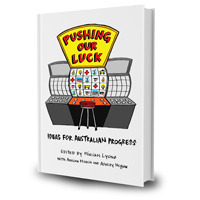 Review of Pushing our luck by Ray Broomhill.
Review of Pushing our luck by Ray Broomhill.Australian Options is published by a registered non profit subscriber owned Association – Australian Options Publishing Inc. The journal was “launched on the basis of positive responses to letters sent out by a group of Adelaide people who felt the need for an open discussion journal of the left.” The author of this review is Adjunct Associate Professor, Australian Workplace Innovation and Social Research Centre, University of Adelaide.
For more information and to subscribe/contribute, visit http://www.australian-options.org.au/
Over the past few years the Sydney based ‘think tank’, the Centre for Policy Development (CPD), has emerged as one of Australia’s leading sources for progressive policy ideas and research. Pushing our Luck is a collection of ten essays published by the CPD on some of our most important ‘big policy issues’ that Australia currently faces.
The essays cover a range of policy topics. Chapters on taxation policy, the Gonski education reforms, the health system, industrial relations, welfare policy and climate change present critiques of some of the current policy issues at the federal level. Other chapters attempt to focus on future directions including where growth will come from in the future, how to build a more resilient economy and how to counteract the next outburst of neoliberal ‘culture wars‘. Each chapter critiques current debates on the topic and concludes with a discussion of ‘ideas we need now’ in which the authors attempt to lay out some progressive proposals that can easily be fed into current debates. They also attempt to identify and challenge the key obstacles to such ideas being adopted.
In my view, the outstanding chapter in the book is on taxation policy. Here, Adrian March, Miriam Lyons, Adam Stebbing and Shaun Wilson provide an excellent discussion of the case for increasing government revenue. With admirable clarity they debunk the myths associated with neoliberal arguments in favour of tax cuts. They demonstrate that Australia has a tax regime that not only falls short of raising the revenue required but which is grossly unfair. They document tax breaks (overwhelmingly favouring the wealthy) that cost the government $111 billion in revenue in 2011-12. Superannuation concessions alone cost the budget $30 billion.
One of the things that stands out in these analyses of current policy issues is the contrast they provide to the strident neoliberal discourse that we have been subjected to in the recent past within the political arena but particularly in the Murdoch dominated media. These are by no means radical proposals but they marshall coherent evidence and rational argument to provide alternatives to the dominant neoliberal world view that is so enthusiastically embraced by the new Coalition government (and often reluctantly by Labor as well).
Most of the essays have been given a last minute revision to incorporate at least some analysis of the impact of the election of the Abbott government in the latter part of 2013. Not surprisingly, the authors do not see the chances of any progress towards the adoption of these policy ideas being enhanced by this change of government. However, as John Wiseman writes (quoting from Milton Friedman!), our function is to ‘develop alternatives to existing policies, to keep them alive and available until the politically impossible becomes politically inevitable’. This was certainly true when neoliberal ideas that had remained unfashionable during the long Keynesian era re-emerged in the era of re-invigorated globalized capitalism. Thankfully, the work of the CPD and other progressive research organisations continues to keep progressive alternative ideas alive during this current era of neoliberal policy hegemony.
Ray Broomhill
Short-term thinking cannot address Australia’s long-term dilemmas – Help us look further ahead!

January 7, 2014
SACOSS 2014 Conference | 11 February 2014
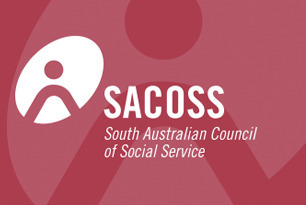 ‘Taxing times – sustaining vital services’
‘Taxing times – sustaining vital services’The SACOSS 2014 Conference will be themed around Sustaining Vital Services, and will raise a range of issues which are of importance to the social service sector and to vulnerable and disadvantaged people in South Australia. Issues include the need for a sustainable tax base to fund vital services and income supports, key social justice issues such as housing, health, justice and social participation, as well as sector-specific concerns about contracting and red tape burdens on charities providing services.
Coming just a month before the SA state election, the conference provides a platform to raise these subjects at a vital time in SA’s political processes. SACOSS hopes the discussion will not only inform and inspire conference participants, but will impact on wider political debates.
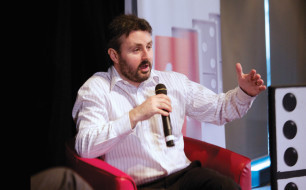
When:
Tuesday 11 February 2014, 8:30am – 5:30pm (CST)
Where:
National Wine Centre of Australia, Hackney Road, Adelaide, SA 5000
Morning tea and refreshments provided courtesy of Baptist Care SA
Key speakers:
Christopher Stone, Research director, CPD Public service program – presenting a session titled, ‘Long term costs of cost cutting’
Ian McAuley, CPD fellow – presenting a session titled, ‘Can we really ask for higher taxes?’
A full list, including of speakers, including Richard Denniss (TAI) and Cassandra Goldie (ACOSS), can be found at http://sacoss.org.au/speakers
More information:
Program: http://sacoss.org.au/program
Registration:
Eventbrite: http://www.eventbrite.com.au/e/sacoss-2014-conference-taxing-times-sustaining-vital-services-registration
SACOSS.org.au: http://sacoss.org.au/register
 Evidence-free attempts to downsize and privatise our public services do not represent value.
Become a CPD Ideas Sustainer and help us challenge the ideology!
Evidence-free attempts to downsize and privatise our public services do not represent value.
Become a CPD Ideas Sustainer and help us challenge the ideology!

The Age & The Sydney Morning Herald | January 2014

Terry Barnes, former health adviser to Tony Abbott has raised the idea of a small co-payment for GP visits. The fee would attempt to combat rising healthcare costs and reduce unnecessary GP visits. Jennifer Doggett, fellow and author of CPD report Out of pocket: rethinking health co-payments discusses the side effects of GP co-payments in a recent article for The Age.
“If, as the paper suggests, the co-payment can be covered by private health insurance its value as a price signal would be negated completely. As poorer people are less likely to have health insurance, it would also result in the more affluent being able to access GPs without up-front costs while the most vulnerable have to stump up $5 to get in the door. In this case, the only function of the co-payment would be to increase the overall cost of our health system and to decrease its equity.”
Proposed $6 GP fee would hurt the poorest
The rational side would suggest that people may weigh up whether a visit to the GP is necessary, but we must bear in mind people’s tendencies to put money ahead of our health. Gareth Hutchens in The Sydney Morning Herald further discusses why co-payments might be implemented, and the impact that could have.
“One such effect is to make Australia one of the most high-cost out-of-pocket healthcare systems in the world. Doggett found that co-payments comprise 17 per cent of health spending in Australia, which is a higher proportion than in 13 out of 20 OECD countries.
Supporters of the idea have said that ”co-payments” are nothing new in Australia’s healthcare system, which is true.
But just because they already exist, it doesn’t mean they’re always beneficial.”
Jennifer Doggett’s article at The Age
Gareth Hutchens’s article at The Sydney Morning Herald
Learn more about healthcare co-payments in Out of pocket
Change can happen faster than you think – help us seize the moment and point to the alternatives. Add your voice to ours!

Centre for Policy Development's Blog
- Centre for Policy Development's profile
- 1 follower



